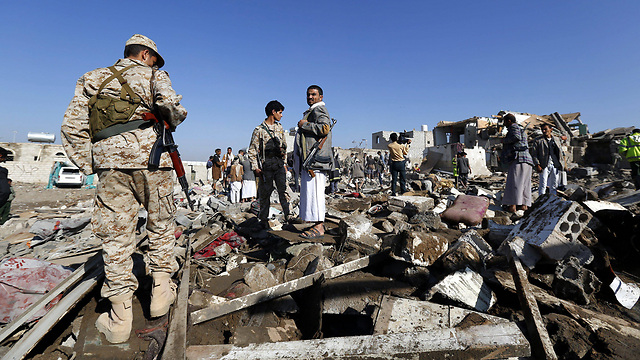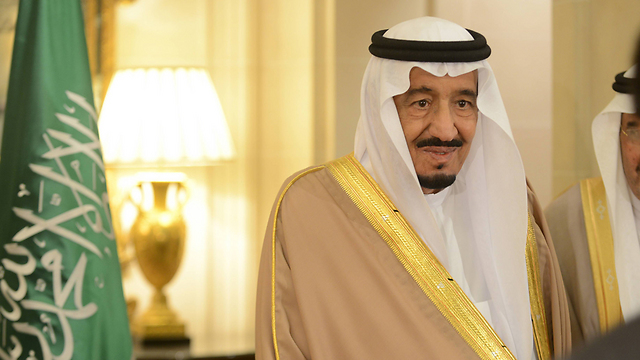Date: Sun, 26 Apr 2015 21:00:45 +0200
Yemen crisis: A war for the survival of the Saudi monarchy
Analysis: With a small, weak and inexperienced army waging its first war in history, Saudi Arabia is fighting to prevent a jihadi takeover of Yemen in a conflict that will sooner or later spill into kingdom.
Yakub Halabi, i24News
|
The civil war in Yemen between the Shiite Houthis and the pro-transitional government of Abd Rabbo Mansour Hadi left Saudi Arabia with no choice but to intervene in Yemen.
The new Saudi King, Salman, fears that a prolonged war south of the kingdom will lead to the Syrianization of Yemen, where amid the political vacuum, transnational Jihadist allied with either al-Qaeda or the Islamic State will enter Yemen to fight against the “infidel” Shiites.
Saudi estimates that a protracted war will sooner or later spill over into the Kingdom. Hence, this war is not a competition over hegemony in the Arab Peninsula between Saudi Arabia and Iran, but a war over the survival of the Saudi monarchy.

Wreckage from Saudi airstrikes in Yemen (Photo: EPA)
The problem of the Saudi Kingdom is that for many years it focused on fighting against domestic rivals of the dynasty and left its external security in the hands of the US. The regime has depoliticized society, refrained from levying taxes as it followed the slogan of “no taxation and no representation” and refused to impose universal conscription on Saudi males. In other words, citizens have no reason to demand accountability from the regime as long as they don’t pay taxes, while the royal family has extrapolated that a strong national army would constitute a major menace to its stability. The Saudi regime treated society as a body that has physical needs but one that does not think.
However President Obama's neo-isolationist doctrine of attempting to resolve international conflicts through international organizations, mediation and diplomacy, has exposed the vulnerability of the Kingdom’s external security. The Saudi monarchy is currently concerned that diplomacy operates too slowly and will be ineffective in containing the Yemeni war, as it was demonstrated in the case of Syria. Now, the Kingdom feels abandoned by the US despite repeated declaration by Obama of US commitment to its security.
In the meantime, the pro-Saudi Sunni regimes of Pakistan and Egypt are not in a rush to dispatch ground troops to Yemen fearing that their army will be mired in an unpopular war in a remote state.
Saudi Arabia is one of the most important states in the world. It is the largest world oil supplier—providing the global market with ten million barrels of oil daily. Through this supply the Saudi regime can set the price of oil and affect growth or recession in the world's economies.
Toppling the Saudi regime was always the main goal of transnational Jihadists. Doing so would give the Jihadists access to the lucrative source of Saudi oil income and the legitimacy of protecting the holy sites of Islam in the Hejaz region.

Saudi King Salman (Photo: MCT)
The Obama administration cannot allow the war in Yemen to undermine stability within Saudi Arabia but so far the US has not done much militarily, fearing that military intervention will strain US-Iran relations at this sensitive point of time of attempting to finalize a deal on Iran’s nuclear program. The US has in the meantime restricted its support of the Saudis in this war to intelligence and logistical support.
As for Saudi Arabia, the Kingdom is waging the first war in its history. Yet with its small, weak and inexperienced army, it cannot commit ground troops to fight both the Shiite Houthis or the Sunni Jihadists, and is relying mainly on its air power that has, thus far, caused the death of many innocent civilians.
Yakub Halabi is an Arab-citizen of Israel, assistant professor of international relations and fellow at the Azrieli Institute of Israel Studies, Concordia University in Montreal, Canada.